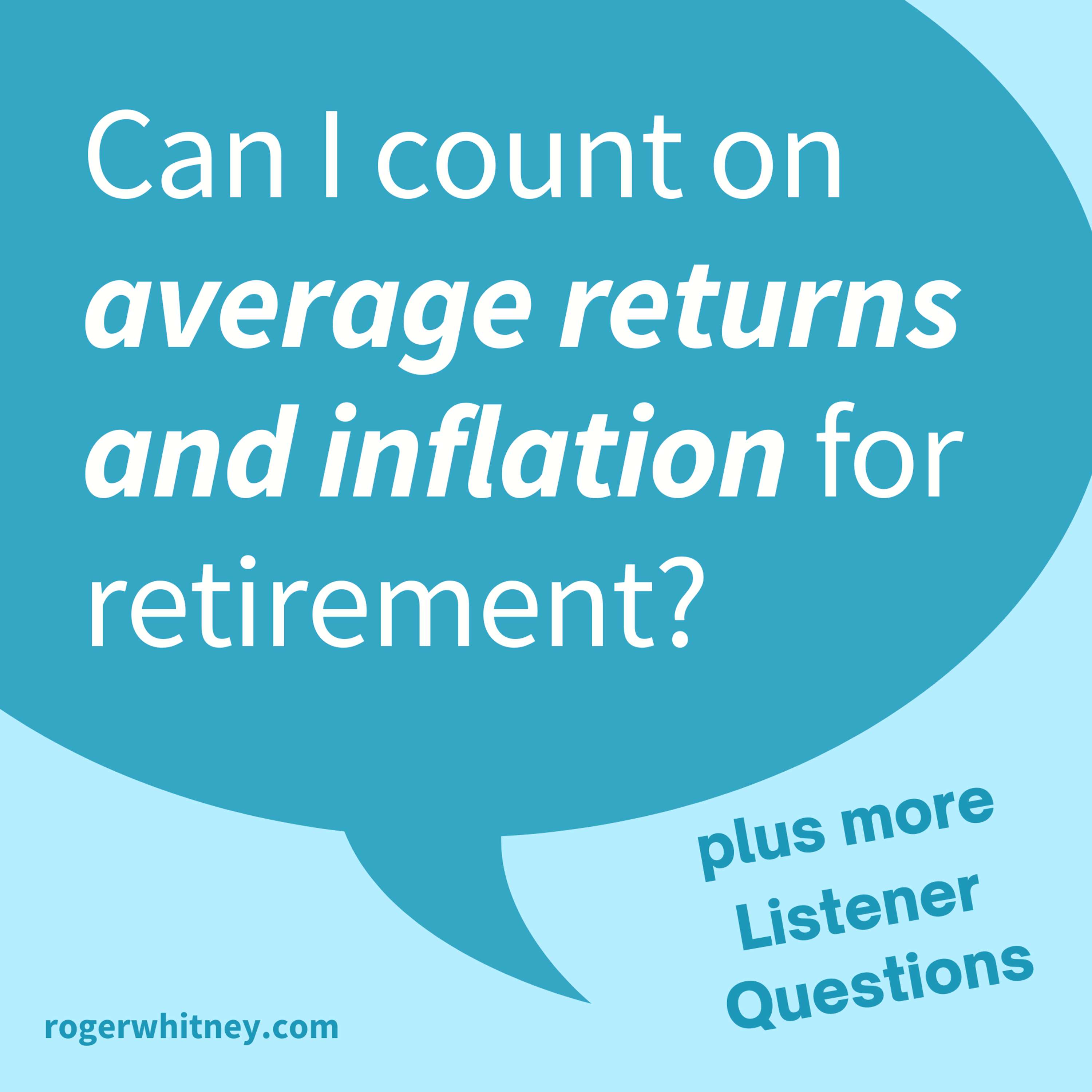
Can I Count on Average Returns and Inflation for Retirement?

Retirement Answer Man
Shownotes Transcript
Many people are concerned about markets and inflation right now, but rather than focusing on this in today’s episode, I’ll answer your investment strategy questions. I choose to focus on strategy because if you can create a feasible, resilient retirement strategy, you’ll be able to weather all kinds of economic uncertainties.
Make sure to stick around until the end to hear an interesting interview that may challenge you to rethink your preconceived ideas. You won’t want to miss it if you are open to hearing different perspectives.
If you are looking for a fast pass to get your retirement question answered, record an audio question at RogerWhitney.com/askroger). Unfortunately, you won’t win retirement
I have some bad news for you. You aren’t going to win retirement. There is no way you will figure everything out because there is no right answer.
Despite this fact, you will be okay. By intentionally working through your decisions you’ll be able to enjoy retirement to its fullest. Not everything will turn out the way you want, but if you work through the decision-making process with the spirit of a scientist, you’ll continually improve. When faced with the results of a poor decision, take time to dissect what went wrong so that you will be able to improve your decision-making the next time around.
Learning from your mistakes instead of stressing over them will help you improve your decision-making process so that you’ll achieve better results in the future. How to account for uncertainty in retirement?
When creating a retirement plan, any room for error is scary. Even a 1% uncertainty can be unsettling. So what kind of market returns should one anticipate when using retirement calculators?
The problem with retirement calculators is that you can’t believe the calculator. None of the scenarios that the calculator proposes will actually happen. This makes long-term planning hard to predict.
It doesn’t matter how much you analyze your future spending, more accuracy will not improve precision.
You can’t know what your spending will be in 10, 20, or 30 years, which means that you can’t make life decisions based on an imagined future. Rather than trying to completely remove uncertainty, make reasonable assumptions to manage that uncertainty. Managing uncertainty is the essence of retirement planning. A feasible, resilient plan will see you through retirement
Once you figure out the basis that you need to live a great life in retirement then you can organize a feasible plan around that great life. Give yourself optionality by making your plan resilient. With your feasible, resilient plan you can use long-term calculations to plan for the short term.
By creating a resilient plan you’ll create slack in the system so that you can change your mind as you change over time. Managing uncertainty instead of trying to eliminate it will give you agency and build confidence in your retirement plan.
Listen to the answers to all sorts of retirement strategy questions and make sure to listen until the end to hear the riveting interview with Amy Bloom. OUTLINE OF THIS EPISODE OF THE RETIREMENT ANSWER MAN LISTENER QUESTIONS
- [4:50] Should Jennifer count on an average market in retirement?
- [13:52] Should I worry about poor investment returns or look for alternatives?
- [23:42] What about using laddered ETFs rather than a bond ladder?
- [25:07] On my language usage
- [26:40] On using a 72T before age 59.5
- [30:45] Should Dan continue to hold a life insurance policy if his house is paid off?
- [35:03] How to leave behind your life story
INTERVIEW WITH AMY BLOOM
- [40:16] Why did Amy choose to share her story?
- [43:00] When did Amy and Brian approach this topic?
- [50:25] How to be helpful with a life-changing diagnosis
- [51:27] On how to approach this situation
- [54:30] How they navigated the logistics
- [1:01:26] How did the family react?
- [1:04:43] What did Amy learn from this experience?
TODAY’S SMART SPRINT SEGMENT
- [1:09:19] Reassess your relationship with the internet and news
Resources Mentioned In This Episode LTCI Partners)Dignitas)BOOK - In Love) by Amy BloomEpisode 441) - How to Leave a Lasting LegacyFidelity Retirement Calculator)Fidelity 72T calculator)Dan Miller)Rock Retirement Club)Roger’s YouTube Channel - Roger That)BOOK - *Rock Retirement *) by Roger WhitneyRoger’s Retirement Learning Center)